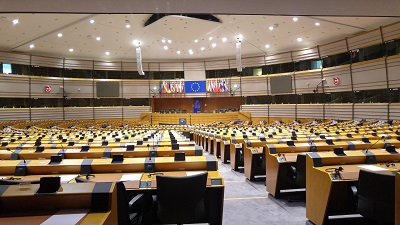
Advocacy Yearly Highlights: Non-legislative
2018 has been one of the best years yet for ECF’s advocacy team; heading into 2019 we really feel like there has been a sea change in thinking on transport policy, as the benchmark for how we measure a successful transportation system has shifted. Decarbonisation of transport, internalization of external costs and multi-modality are now at the top of any serious agenda; with the bicycle following close behind. This article focuses on the non-legislative side of our work, you can find our yearly wrap up on our legislative work here.
To start with the European level, we were happy to begin our ‘structured dialogue’ with the European Commission on the implementation of ECF’s EU Cycling Strategy, submitted in 2017 to the Commission, as a source of inspiration. We are still confident the EU will come up with a genuine EU Cycling Strategy in the future. The commission is finding our holistic approach very persuasive, as the broad range of benefits that cycling can bring, in addition to the obvious positives for transportation, is proving hard to fault.
Above the EU, working with the WHO and UNECE, the wheels have been churning slowly in the background on a Pan European Master Plan for Cycling Promotion (PEP) and a draft proposal was finally published this year! This is a project 5 years in the making organised by THE PEP (Transport, Health, Environment Pan-European Programme).The signatories will be the representatives of 54 member countries and ECF has been successful in making sure the provisions are as ambitious as possible. Keep an eye out for the 5th High-level Ministerial Meeting in October 2019 in Vienna when the final version will be adopted!
Back down at the national level, the publishing of the Graz declaration was ECF’s highlight of the year. The document was signed by all of the EU Member State’s transport and environment ministers, and included calls for cycling modal shift, a strategic framework for European active mobility and the integration of active mobility into European funding schemes, to extend and improve active mobility infrastructure. It doesn’t get much better than that. The Graz declaration was great for cyclists.

Stepping back from all the agreement signing, ECF has been working hard to get cycling on the agenda regarding the clean air regulations, as well as beginning to work with our members to influence their country’s National Energy and Climate Plans. Particularly in the context of the Commission’s new Net Zero GHG emissions goal in the Long Term Climate Strategy and the targets set out National Emissions Ceilings Directive, we feel these two areas are key avenues to explore over the next few years and it is important we begin to dig foundations for (hopefully) successful future projects.
Lastly ECF was proud to publish a fiscal report that compares the subsidies for commuting purposes for different modes of transport. The findings were very conclusive, and help explain why car use has remained persistently dominant as a mode of transport. It can be found here.
Contact the author
Recent news!
Upcoming events
Contact Us
Avenue des Arts, 7-8
Postal address: Rue de la Charité, 22
1210 Brussels, Belgium









